Sustainable and Eco-Conscious Yacht Chartering
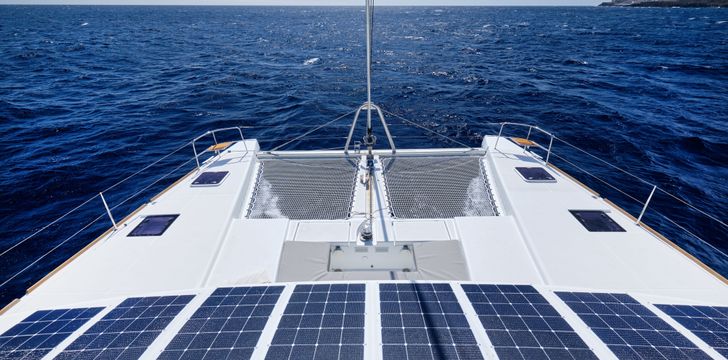
The Yacht Charter Sustainability Practices to Help Preserve the Seas.
Reducing Plastic Waste | Lowering Carbon Dioxide Emissions and Buying Carbon Credits | Sustainable Energy Yachts | Replacing Diesel with HVO
Sustainability, CO2 reduction, and Yacht Chartering
Boatbookings has been championing sustainable "green" chartering practices for almost 20 years, in fact, we coined the term "green chartering". What was once a side issue in the yachting market, has now become a defining issue.
Nearly every yacht is reducing plastic use, insisting on reef-save suntan lotion, and looking for ways to reduce fuel consumption. Electric yachts and motors are being announced nearly every day. Yacht Shows now routinely have entire sections devoted to electric boats. New sustainable fuels that emit up to 80% less CO2 are available. And the major yachting association, MYBA, has a new sustainability committee to push sustainable practices in all areas of superyachting.
See the best green charter yachts for 2024-2025
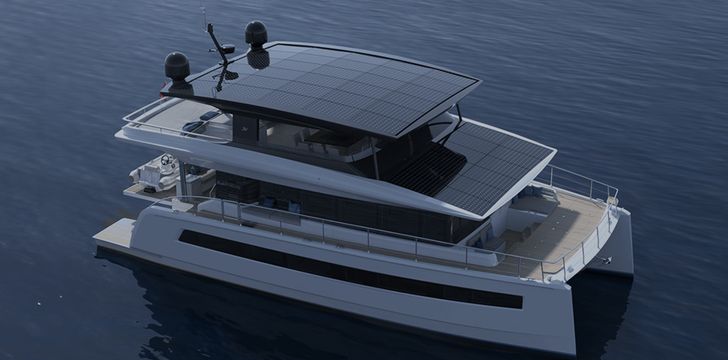
But there is a long long way to go! Yachting is still almost entirely diesel-based. Boatbookings is actively sourcing and promoting the new generation of "green" yachts, and list them on our top sustainable charter yachts page. We follow all of the announcements of new sustainable yachts and report them on our sustainable charter blog. And we offer yacht carbon offsets for all of our charters if you want to offset your emissions. It will take a significant industry makeover, but will get there, we literally have no choice!
Below are actions you can take to improve your carbon footprint when you charter - please join us in taking better care of the water and air when you charter!
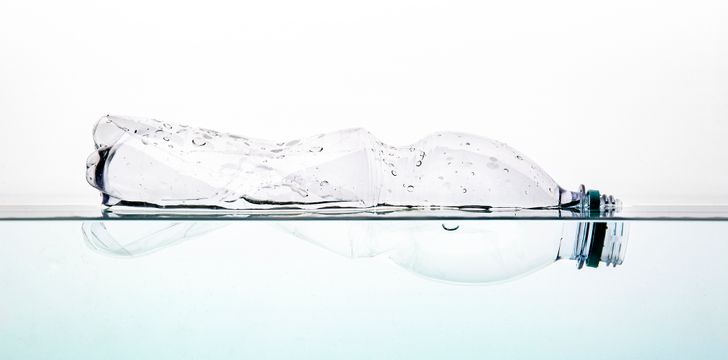
Reducing Plastic Waste and the Use of Bottled Water
Plastic waste is becoming an increasingly severe environmental issue, with plastic particles permeating the seas. It's estimated that 70 million tons of waste get dumped into the oceans each year, 70-80% of that waste is plastic which can take up to 300 years to degrade.
The problem is not just that it's unsightly, it harms animals and even humans. It's estimated that more than 100,000 marine mammals die each year in the North Pacific from ingesting microplastic or becoming tangled in larger plastic pieces. Microplastics have been shown to alter the breeding patterns and behavior of fish. New research suggests that contaminants from ocean plastic are eaten by tiny fish that are eaten by larger fish that are eaten by us - plastic and its contaminants have entered the food chain. Finally, researchers have also shown that water in plastic bottles contains large amounts of microplastics, so bottled water is actually less clean and healthy than desalinated water!
To do its part, the Charter Yacht Broker Association recommends eliminating bottled water on yachts through their "Going Green to Save the Blue" Campaign. They suggest using desalinated water and distributing it in refillable bottles during charters.
Water Desalination techniques have improved dramatically in the past few years, to the point where it's nearly impossible to distinguish water made from a desalinator from bottled. Many charter yachts have signed up to try to reduce the use of bottled water on their charters and are seeing good success. Not only does it dramatically reduce garbage during the charter, it also saves cost and storage space.
We fully acknowledge that if a charterer wants bottled water, that's their right, of course. But a bit of education and a taste test can go a long way. Do we really need to import water from Fiji to serve in the Caribbean?
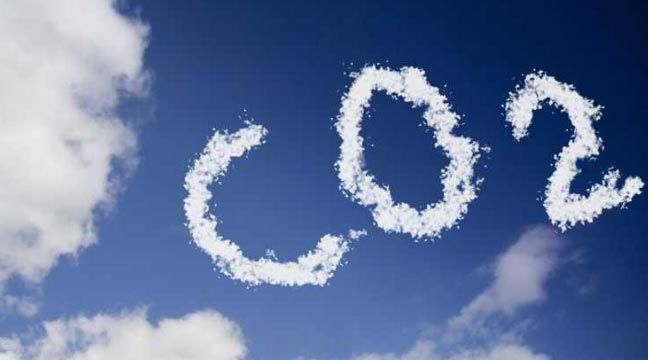
Lowering Carbon Dioxide Emissions while Chartering and using Carbon Offsets
The increase in Carbon Dioxide levels in our atmosphere has been scientifically linked to Global Climate Change and Global Warming. Any time you use a motor on a yacht more CO2 is sent into the atmosphere, exacerbating this problem. While yachts produce a very small amount of the CO2 that goes into the atmosphere, everyone can do their bit to reduce emissions if they wish.
The best way to charter with low carbon emissions is to charter a sailboat! While using the motor to recharge the batteries or while mooring will still create CO2, you will generally be using an infinitely renewable source of energy - the wind!
Carbon Offsets. If you do use a motor while chartering, you can buy "carbon credits" to offset the emissions you create while chartering. The United Nations works with many charities and NPOs to certify projects that will reduce carbon emissions. Projects such as building electricity-generating dams that will replace carbon fuel (coal) burning electrical generation, wind farms, tree planting, etc. all can qualify for carbon credits.
If you are interested in offsetting your carbon emissions, we'd be happy to do it for you. You can use our Carbon Offset Calculator to determine how much it might cost, and just let your broker know you want to buy offsets for that amount. Or we can do the calculation for you if you wish.
Please see our Yacht Charter Carbon Offset Guide to learn more
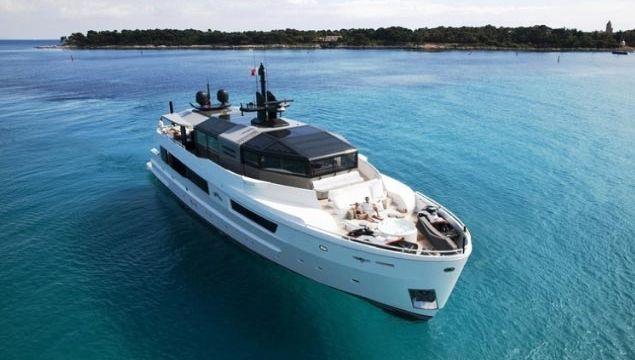
Sustainable Energy Yachts - Solar and Hybrid
Currently, there are several major projects to create solar-powered and electrified yachts, many with space-age designs. We've chronicled several of these on our Blog, such as the Emax Evolution Schooner (pictured) or the Sauter Emax Excalibur Motor Yacht. See our e-boat article for an up-to-date discussion and listing of the new boats and developments.
Hybrid Yachts use electric motors instead of gasoline, and the spinning props regenerate the batteries while sailing, similar to a hybrid car. So they effectively are "Green" Boats that produce almost no carbon emissions at all!
Some are even efficient enough to offer air-conditioning, so you can have comfort with no negative environmental impact. The leading production boat is the Lagoon 420 Hybrid, several of which we have in the BVI and elsewhere.
We've compiled a complete guide to the coming electric revolution in yachting and boating.
See the best zero-emission and hybrid charter yachts
Replacing Diesel with HVO
Perhaps the most encouraging development to reduce emissions for current diesel-powered yachts (nearly all of them!) is a new fuel called Hydrotreated Vegetable Oil (HVO). This fuel, which can be used in current diesel engines without modifying them, offers up to 90% reduction in CO2 emissions. You're simply burning clean, already-used, vegetable oil. Although this is a nascent industry, great strides are being made. Please see our blog post about HVO to learn more!
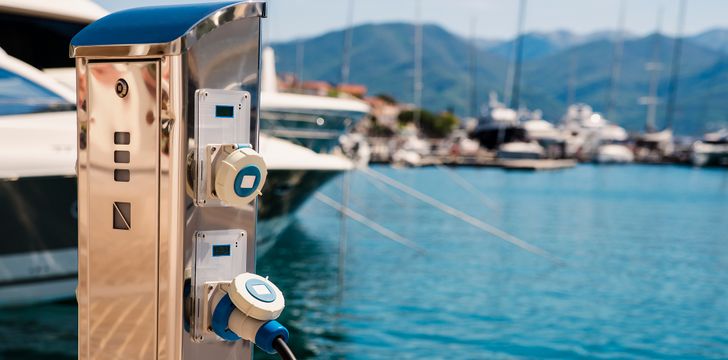
Other Types of Green Chartering
The above are just a few of the initiatives underway for green chartering. For the most current information, see our yacht sustainability blog which is devoted to many of the advancements in electric boating and green chartering.
For further information about Green Chartering or Boatbookings, or to contact us, just click on these buttons:







